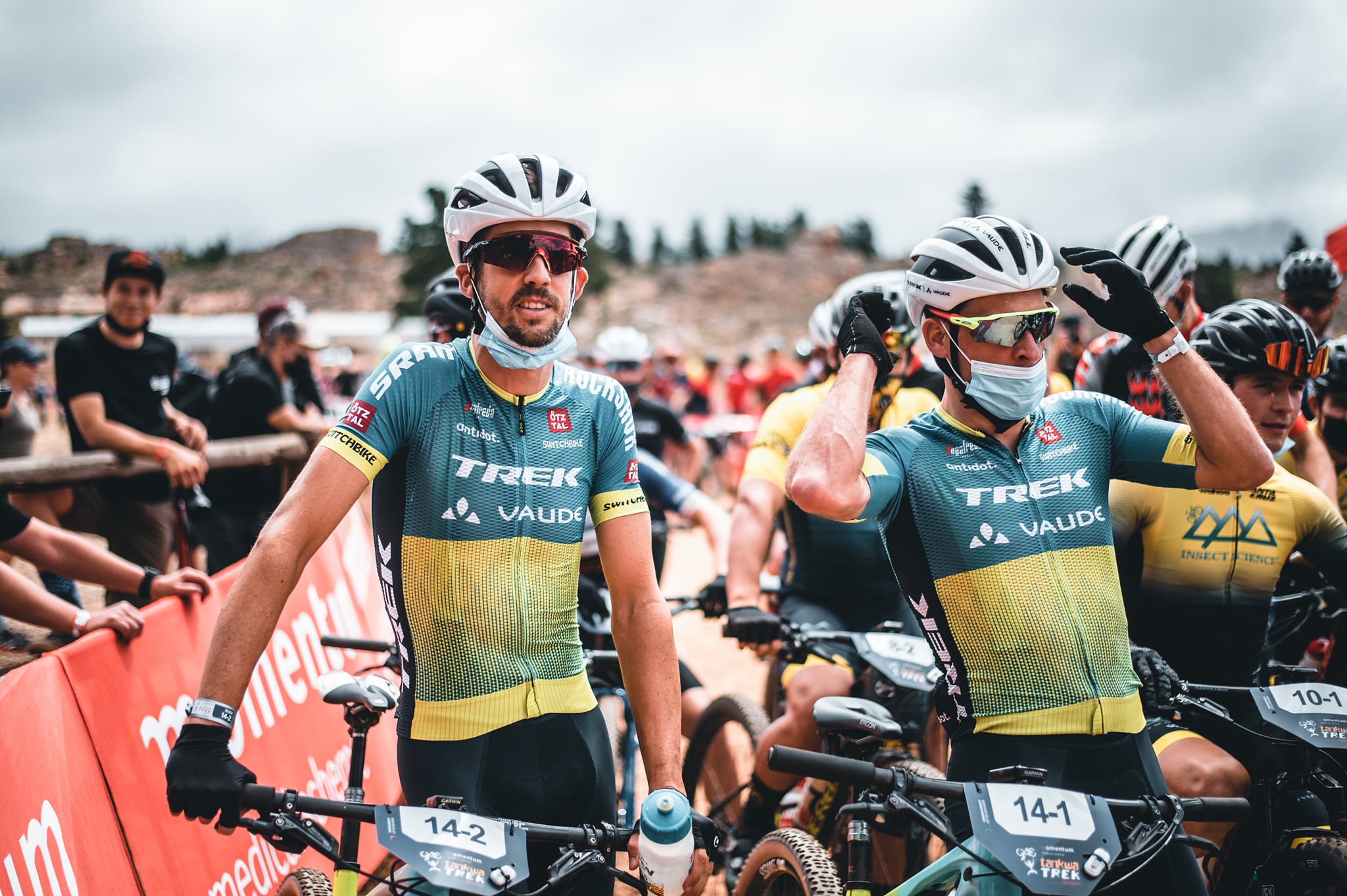For a while, during the Covid-19 restrictions, no mountain bike events could take place. It was a massive blow for event organisers, especially those whose only form of income was mountain bike events. While there were still some restrictions until April last year, mountain bike events have bounced back. Not the way they were before, but in many ways, better than before. Here’s why.
By Sean Badenhorst
Having spent more than 30 years documenting mountain biking in various roles as a writer, I have come to know the industry pretty well. I have experienced many changes over those three decades and am grateful for events and how they transformed mountain biking to the significant cycling discipline it is today.
I thought I’d lay out a short summary of mountain biking events over the past 30-plus years in South Africa as a reminder to those that have been in it for as long as I have – some even longer – and as a form of education for those that have got into mountain biking more recently.
1989-1991
The first ever SA Mountain Bike Champs were held in Bloemfontein in 1989. It was somewhat unofficial though as Bill Green, a bike shop owner in Bloemfontein organised it. Early mountain bikers from Transvaal, the Cape and Natal travelled to the event, which, early MTB pioneer, Gerry Baillon tells me: “It was a one-lap course of about 20km around the fields in Maselspoort, marked like a motorcycle enduro course. That afternoon there was a foot-up trial event. The party was of course memorable!”
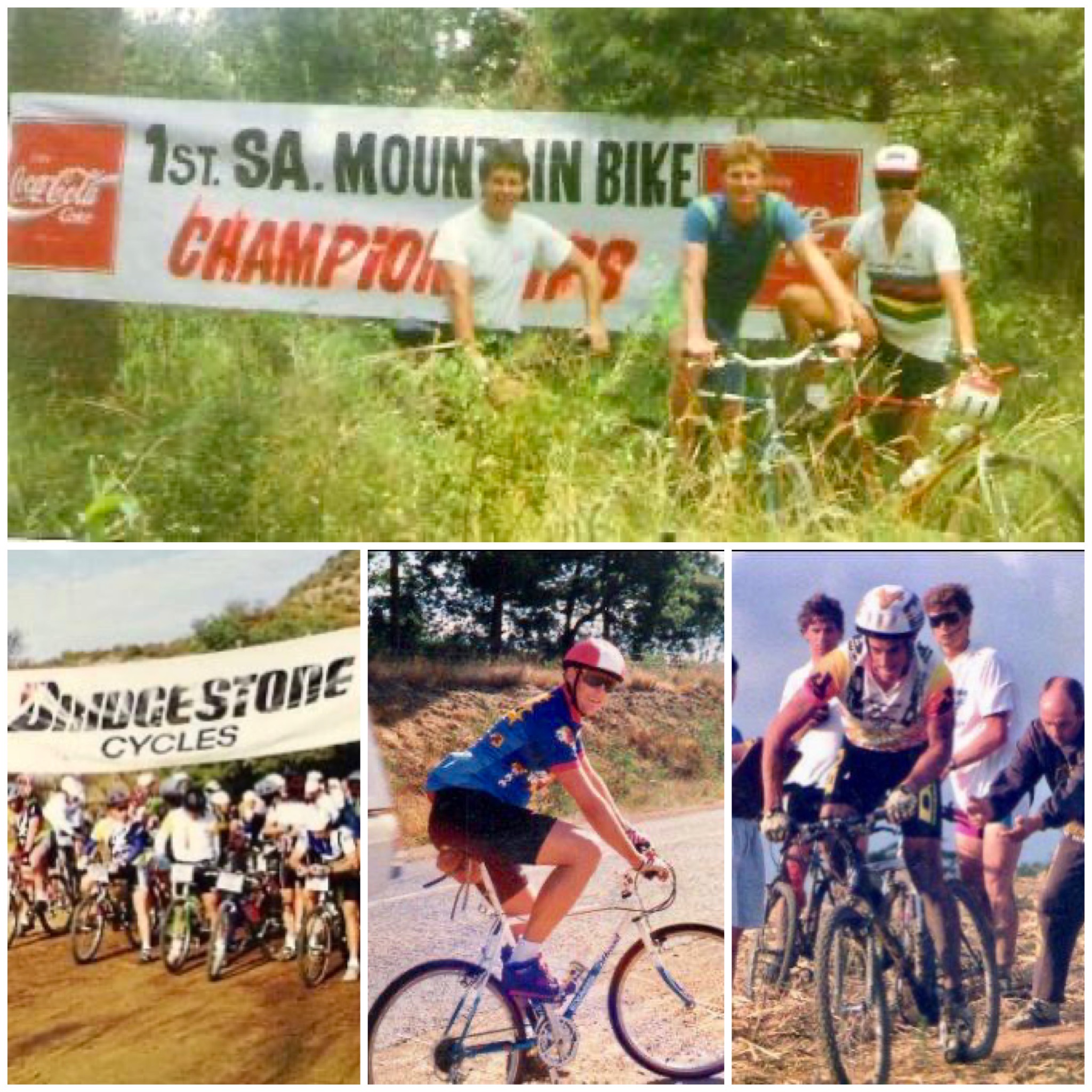
1992-1995
The sport comprised XC and Downhill racing with a sprinkling of MTB Classics in each region. These Classics were essentially marathons, but they were seldom longer than 45km. They included the Hilton Classic, Rhodes Classic and Spring Classic (Joburg) among others (I think there was one in Hermanus or Somerset West). In 1992, the SA MTB Commission was formed as a division under the SA Cycling Federation (now CSA). This formalised the sport and introduced a national cup series and a national champs. In 1995, the first ever stage race was organised by Wikus van der Walt (EcoBound), To Hell and Back in the Karoo.
1996-2000
Mountain biking was included in the Olympic Games in 1996 and XC became XCO. This saw increased focus on XCO and Downhill as the primary disciplines of racing in South Africa, with the Classics growing a little, but not much. Mountain biking wasn’t even a tenth of the size of road cycling. In 2000, Glen Haw and Steve Stamp organised the second MTB stage race, the Imana Wild Ride on the Eastern Cape/KwaZulu-Natal Wild Coast.
2000-2003
The modernisation of the mountain bike technology saw more and more brands designing full-suspension bikes with varying degrees of success. Overall though, this made riding mountain bikes for longer than 45km more feasible and attractive for more people; and the ‘Classics’ started to introduce longer and shorter event options. At the 2003 ‘Argus Expo’, Kevin Vermaak promoted his new race, to be held in 2004 between Knysna and Stellenbosch, the Cape Epic.
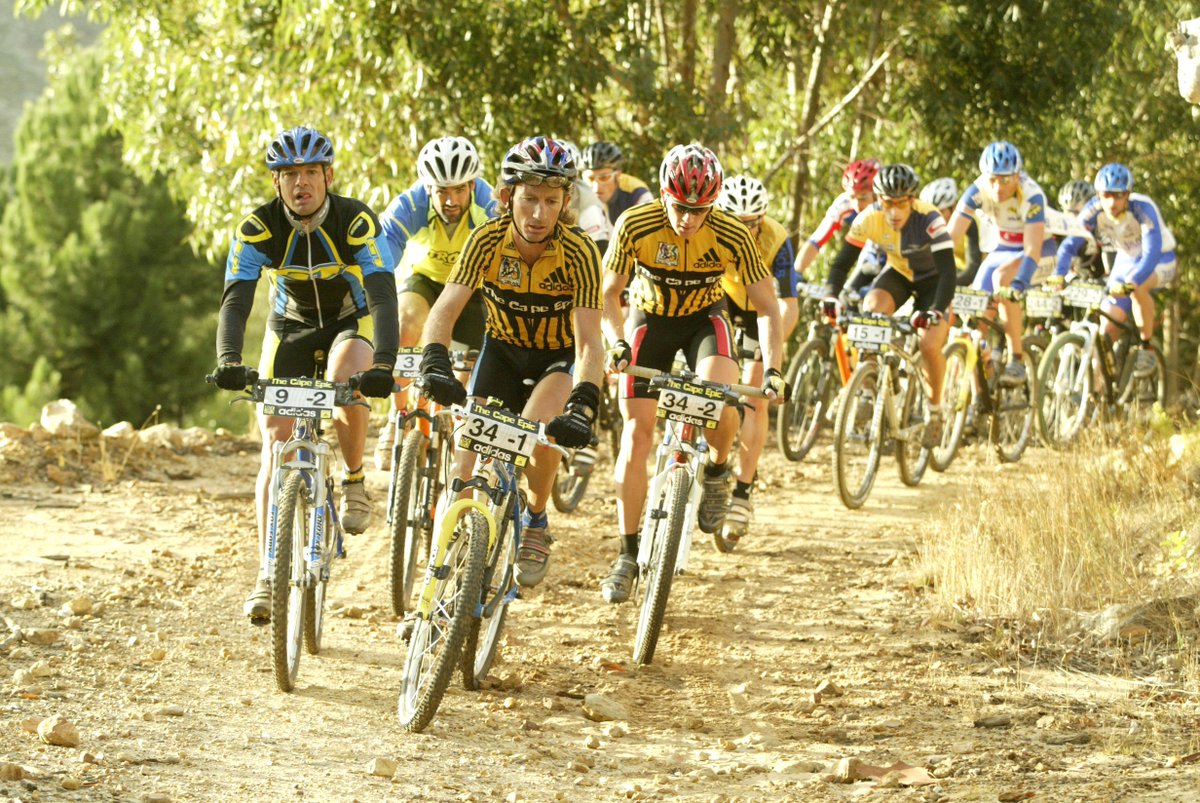
2004–2014
Fritz Pienaar, the SA XCO Champion from 2000-2002 started a bike shop (Fritz Pienaar Cycles) and an events business (Advendurance) with friends and fellow mountain bikers, Heinrich Richter and Theo Grobler. They created a national marathon series incorporating some of the existing Classics, such as Sabie, Barberton and others, with Mazda as the enthusiastic title sponsor. The series was televised on a weekly show, which helped popularise mountain biking.
The inaugural edition of the Cape Epic in 2004 also gave mountain bike racing a significant boost. It offered the endurance sport-mad South African population something fresh to focus on. And of course it launched a number of shorter stage races, including the Sabie Xperience (2004), through Dennis Lawrie and Fiona Coward and Sani2c (2005), through Glen Haw, with many others following.
This 10-year period saw mountain bike racing flourish in South Africa. And when I say flourish, I mean ridiculously so! Mountain biking began to draw level with road cycling around the late 2000s and then, since around 2010, it has dwarfed it.
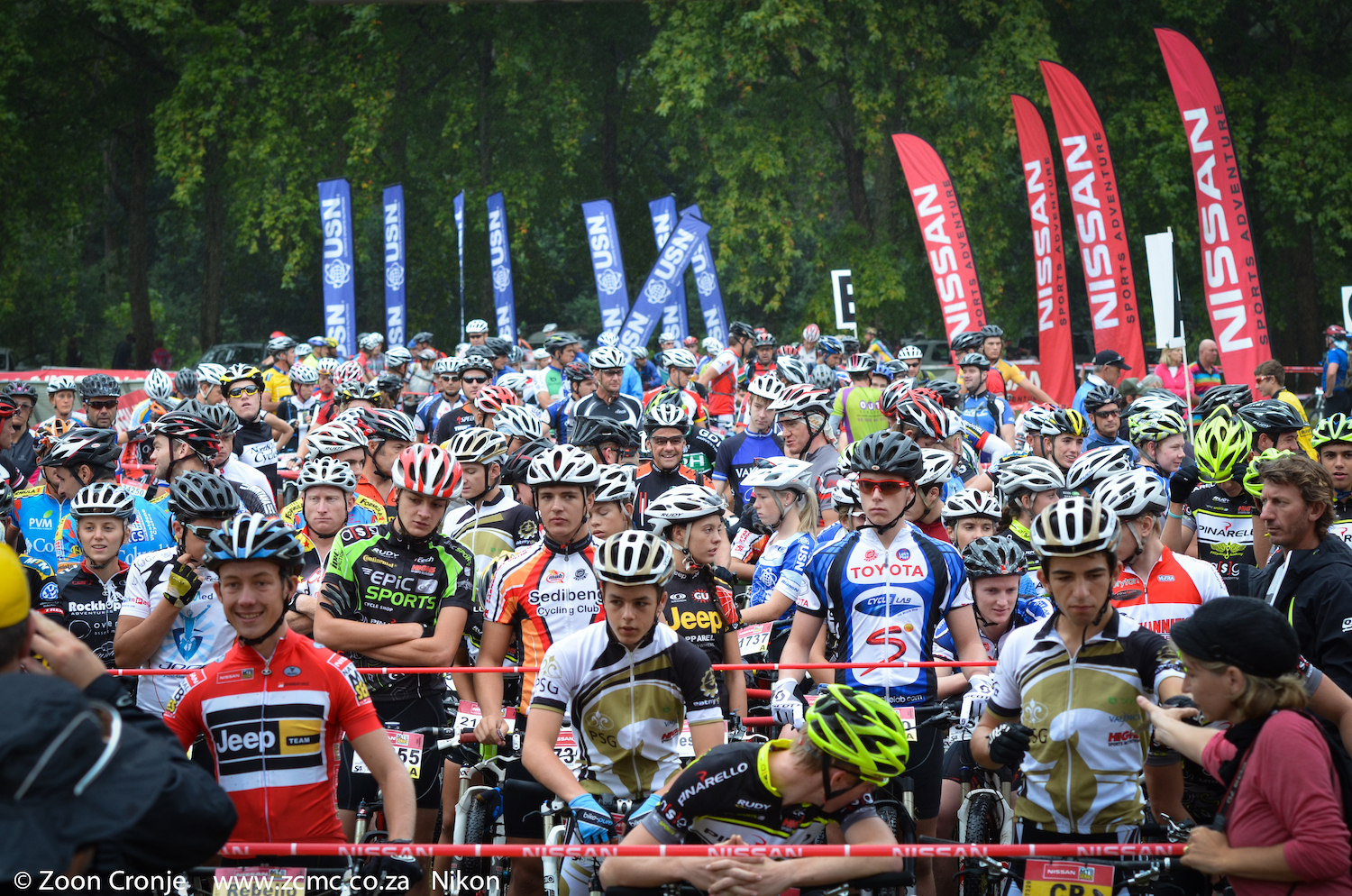
2015-2019
At one point, there were more than 60 mountain bike stage races in South Africa! Many were keen to try and emulate the huge success of Sani2c, which had introduced three starts to accommodate the demand – the Trail, the Adventure and the Race. Some of these events became well established and are still around today, but others faded away.
Advendurance had an incredibly slick series that attracted MTN as the title sponsor! This series became hugely popular too, especially the half-marathon distance that attracted the average men and women who simply just loved riding mountain bikes and the lifestyle it brought. The abundance of events (crowded market) combined with the beginning of the collapse of the South African economy, saw a decline in race entries from around 2018 and some popular events found they weren’t filling up quickly like they once did.
2020-2023
In early 2020, the country was locked down in reaction to the Covid-19 virus. We all know what a devastating effect that had on everyone (except most government ministers and their mates). The forced break in mountain bike events didn’t stop people riding though. If you love riding bikes, you’ll keep riding bikes, even in small groups at mountain bike trails parks, which enjoyed their turn to flourish. Those who had developed an annual event racing routine found themselves realising that they could still enjoy riding their bike without that event. And that event. And even that must-do event! They started to ride with their families and pay forward their knowledge and passion and skill to others. Bought a gravel bike. Bought a trail bike with a dropper seatpost and more suspension travel. Discovered other disciplines of mountain biking or ‘off-road’ riding.
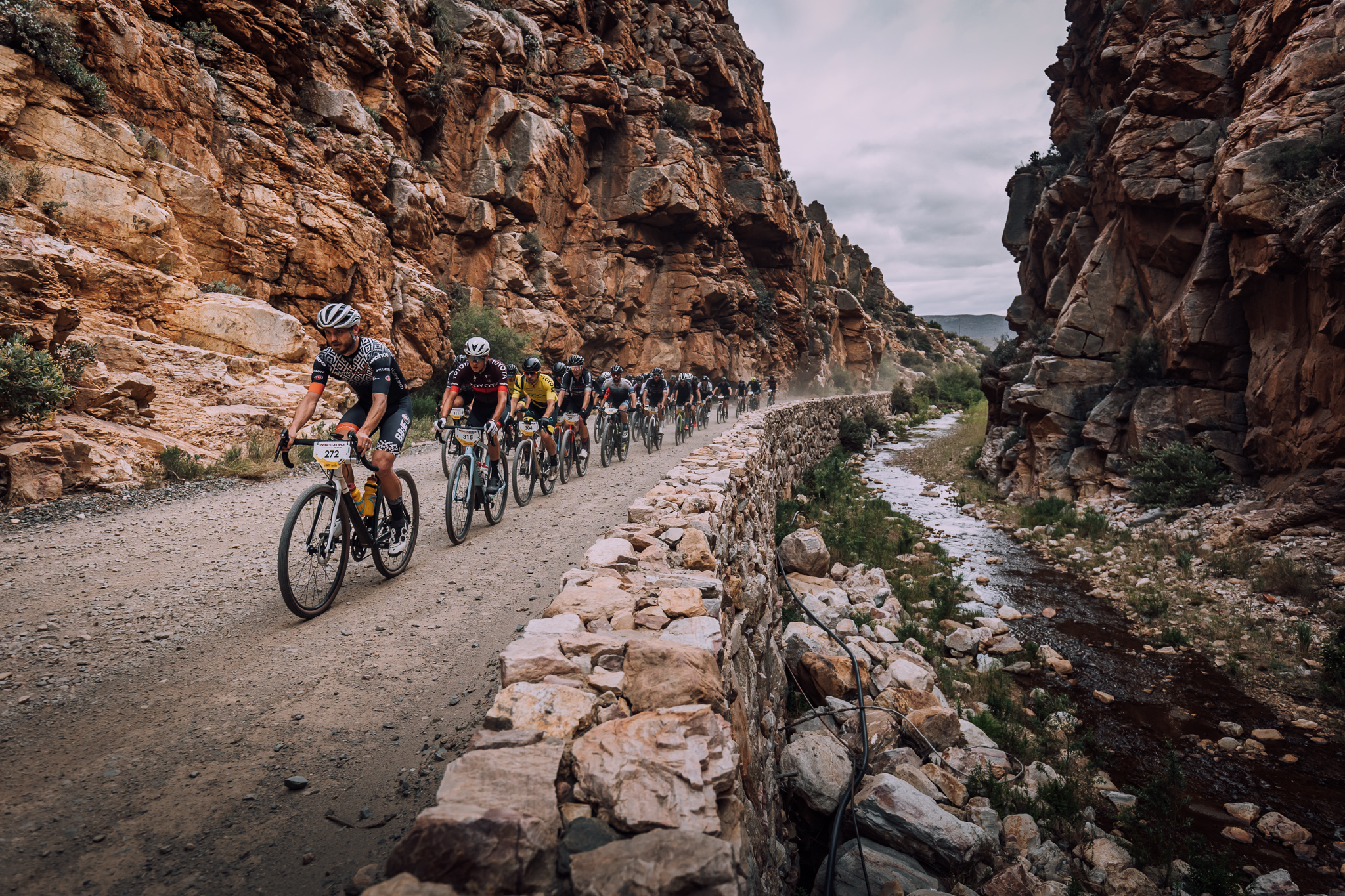
Another factor that gradually crept up on endurance events, by far the most popular category in South Africa, was the generational shift, which I wrote about here . The new mountain biking generation love riding and love racing, but prefer their thrills in short periods with dirt jumps, XCO and Downhill races. Then, in the past couple of years, Enduro and Gravel racing have both become new UCI racing disciplines and both warmly embraced by South African mountain bikers eager for a fresh competitive challenge.
As I see it currently, there are probably more events on the South African mountain bike calendar than ever before. But they’re divided by more disciplines, are catering for a new generation, are deviating from the standard stage-race formula to be more exclusive (higher cost and lower numbers), but also more inclusive (bring your family with you). The crushed economy and load-shedding have also contributed to changes in mountain biker behaviour. The middle class citizen has had to make a plan (with related costs) to secure some form of power supply for his/her home. Mountain bike events aren’t a priority and therefore feel the brunt of the country’s state of true disaster.
Interestingly, almost all those people I mentioned above created events or series that have endured. Sure, they have adapted, but they’re still around because they’re high quality South African mountain bike races, owned/managed/run by people who truly love mountain biking and all it represents, no matter what sub-discipline it is.
Sean Badenhorst became a cycling writer in 1990 and started mountain biking in 1991. He still rides regularly, races occasionally and writes about mountain biking daily.
While you’re here, if you’re looking for a mountain bike event to enter, we have a comprehensive listing of them , courtesy of Biogen, here. And if it’s purely a stage race, you’re after, here’s a list of those for the remainder of the year (note: the lists aren’t exhaustive as we partly rely on event organisers to send us info).


